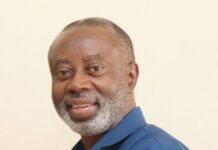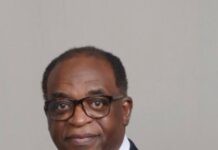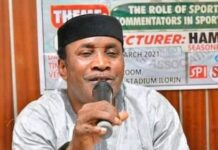In a few days the Muhammadu Buhari administration will be two years old. following the historic elections that swept an incumbent president Goodluck Jonathan out of power and reduced the majority of the former ruling PDP to minority in the national assembly, Nigerians were fully mobilized for a change in approach to governance that will hopefully transform our collective misfortune to progress and prosperity.
Unfortunately, the mid-term score card of the first four year mandate of the Muhammadu Buhari presidency, records a disappointingly low performance in most critical aspects of its core responsibilities of security of lives and properties, economic well-being of the citizenry and national unity. Under the current administration, the economy slipped into a debilitating recession leading to a drastic reduction in the already poor standard of living of most Nigerians. As a direct result of the non-conciliatory posture of the victorious APC’s Muhammadu Buhari following the defeat of PDP’s Goodluck Jonathan in the 2015 presidential election, which is expressed by his doctrine of a political scorched earth policy of rewarding only areas and peoples who voted for him [ 95 per cent] and punishing areas and peoples who voted against him [ 7 per cent] and made real by his pattern of appointments and patronage has left the Nigerian nation most divided in its entire history as a sovereign nation. This is because, the pattern of voting in the 2015 presidential election was largely influenced by ethno-religious sentiments that saw the former president Goodluck Jonathan receiving massive support from the predominantly Christian population of his home region of south south and the closely ethno-geographic affiliated south east region, while his main challenger and current president Muhammadu Buhari enjoyed near total support of his predominantly Hausa- Fulani Muslim enclave of the north west and the equally closely ethno-geographic Muslim population of the north east region, thereby polarising the country into two extreme halves. The contest was tipped in favour of Muhammadu Buhari by the unbounded votes he received from significant section of Christian northern population of the central states coupled with a slight majority of votes from the south west. These set of people were already weary of the corruption riddled government of succeeding PDP administrations hence voted objectively for change as they were not affiliated to Buhari by tribe or religion but were drawn to him by his personal qualities of integrity, honesty and incorruptibility, which was bolstered a great deal by his consistent challenge of every incumbent PDP president in every election since 2003.
However, with the level of sectionalism witnessed under the current administration, it has become abundantly clear that the president owes his electoral success more to the support he had consistently received from the Muslim north but not the votes he obtained from other parts of the country, which made the difference this time in his electoral fortunes. So far the president have largely implemented the original ‘’Arewa agenda’’ that propelled his interest in partisan politics in the first instance, which led him to throw his hat into ring of contest to wrestle power from the south back to the north in 2003. Apparently, it was his devotion to this agenda that kept Muhammadu Buhari in the race and not his love for Nigeria as previously widely believed. The negative consequences of these high levels of sectionalism are largely responsible for the lack of progress in all aspects of national lives today.
Matters are made worse by a corrupt and incapacitated political establishment, which controls the two major political parties that are APC and PDP. There appears to be no difference in approach to governance between the former ruling party and the current one. The same set of individuals who ‘’destroyed Nigeria in sixteen years’’ now congregates in the ruling APC and holding forte in government at every level from top to bottom. The more the APC blames the PDP the more the former is looking and behaving like the latter. The current political establishment has become obsolete and is increasingly degenerating into political irrelevancy because it has failed to fulfil the promise of economic dividends of democracy. The major preoccupation of the establishment is still power rotation and sharing of our national resources among the ruling elite, whom because of their extreme comfort are careless about the collective well-being of the citizens.
As 2019 approaches, Nigerians must begin to look beyond APC’s Muhammadu Buhari for good governance, progress and prosperity. The bar and standard of the quality of leadership must be raised above ethno-religious sentiments to pragmatic solutions to our problems as a nation. One lesson learnt from the old order of power struggle, which is usually resolved by rotation and zoning of political offices leading to the institutionalization of sectionalism in government business at every level, has not paid off the intended beneficiating sections of the country. The original intention of power rotation, which was to ensure equitable distribution of resources and even spread of development across the federating units, has unfortunately degenerated into cesspool of corruption resulting into an equitable distribution of loot among the ruling elite, cutting across all ethno-religious divides. For example, after six years of ‘’our son’’ presidency of Goodluck Jonathan, the fortunes of the Niger delta region remains unchanged. He did not succeed in transforming the landscape of the polluted oil rich environment to a clean and safe place for his own people; neither did he significantly improve their socio-economic life. His developmental legacies in the Niger delta are mostly of abandoned projects including the vital East-West road. Similarly, the rate at which the Buhari presidency is underperforming, the enormous problems confronting the northern region will largely remain unresolved. After his first four year mandate and despite his sectionalism, the north will remain in the unenviable list of educationally disadvantaged region. His sectionalism will not improve the socio-economic fortunes of his north west, which still ranks very low on the Human Development Index as one of the poorest regions in the entire world and hence the twin scourge of Al majiri and Boko Haram will remain with the north. Clearly, that a president comes from a section does not always guarantee benefit to the people. Therefore, the clamour for a northern presidency in 2019 by some regional groups is a recipe for retrogression.
There are no northern solutions to northern Nigeria problems neither are there southern solutions to southern Nigeria problems. There is only a Nigerian solution to Nigerian problems, north or south to be administered by a Nigerian president. The search must begin in earnest for a Nigerian president in 2019; presidents that will not be defined or limited by tribe, religion or region but by a broad based pan Nigerian agenda. Our next president must be a man that is not sectional in both his private and public life. The antecedents of our next president must be scrutinized to ensure his beliefs, association and personality exemplifies a united pan Nigerian sentiments. The vital unifying tools of integration and assimilation of Nigerians into any society of their choice in any part of the country should be exemplified and promoted by the next president. In order to move ahead and catch up with the fast developing world, Nigeria should begin to exist more for economic reasons and cease being a waste land of negative politicking. We need a president that will drive the process of running Nigeria as a competitively profitable entity for both the government and citizens in the league of global competitive nations.
The agenda before the next president must set right by the citizens. To achieve rapid development, the next president must embark on a revolutionary educational reform, whose core principle will be to re-educate this current generation and educate the next to achieve political and economic development. One major objective of our educational system should be to produce Nigerians that are completely rid of ethno-religious biased mind-set with the necessary skill to contribute positively to the economic development of their fatherland.
No nation on earth is blessed with abundant human and natural resources(needed), least of all Nigeria. Nigeria like other prosperous nations must necessary look beyond its borders for extra source of income by tapping into the natural resources, markets for finished goods and quality human resources of other nations to shore up our own. Nigeria’s economy must begin to shift from a dependency on Foreign Direct Investments FDIs to becoming a major player in global trade as an Overseas Investor Nation beginning with the domination of trade in the West Africa sub region. Therefore, to achieve these objectives seamlessly, the next president should be a visionary leader who is knowledgeably equipped enough to properly articulate for Nigeria, a workableforeign, immigration and defence policies aimed at negotiating and getting a sizable chunk of global resources through bilateral/multilateral trade agreements. The discourse on the next president of Nigeria continues.



